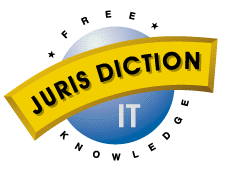 Software-Related Patents:
Israel
Software-Related Patents:
Israel
copyright 1996 Donald M. Cameron , Aird & Berlis
Contents
Statutes
There is no provision in the Israel Patents Law 1967 for the protection of computer
software per se. Objections to patentability have been principally been based on the
"mental process" concept. Software is generally protectible if it can be tied to
novel hardware.
Section 3 of the Patents Law states "An invention, whether a product or a process,
which is new, useful and susceptible of industrial or agricultural application, and which
involves an inventive step, is a patentable invention." Section 12 states "The
specification shall contain a title by which it is possible to identify the invention, a
description of the invention, with drawings as may be necessary, and a description of the
manner of carrying out the invention such that a man of the art can carry it out according
thereto."
Regulations
There are no regulations that deal specifically with the patentability of software.
Case Law
In Rosenthal Sunia v. Registrar of Patents, (1984 Appeal No. 501/80), the Tel Aviv
District Court upheld the Registrar's finding that a patent involving a method for tool
compensation which used a computer program in calculating the final correction was not
patentable. The Registrar rejected the patent application on the grounds that the
invention was not patentable under Section 3 and that the specification was not enabling
under Section 12. The program was considered to be an equivalent to steps carried out with
paper and pencil by the human mind and therefore were not patentable.
In its decision, the court stated "...an invention of this kind, which is
essentially calculations or a program, will not be granted a patent." The Court also
stated that, since the Applicant did not describe in the specification any device for
performing the invention, the specification does not include a description of the manner
of carrying out the method sufficient for purposes of Section 12.
In 1994, the issue was revisited in an appeal to the Jerusalem District Court from the
Registrar's refusal of Israel Patent Application No. 68409 filed by United Technologies
Corp. This application was for a helicopter control system that used a computer program to
reduce fuel consumption based upon flying conditions. As the hardware was prior art, the
novelty lay in the software.
The District Court reversed the Registrar's decision and ordered that the patent be
granted. The Court distinguished Rosenthal as standing for the correct proposition that
computer programs per se and mere mental acts are non-patentable subject matter. However,
an invention which includes both physical components and computer software which interacts
with the physical components comes within the meaning of Section 3 if it provides novel
results.
It should be noted that the issue of sufficient disclosure under Section 12 was not raised in the United Technologies case. Still unresolved is whether the software must be attach as part of the application to meet the Section 12 requirement.
Endnotes
Return to:
Cameron's IT Law : Home Page ; Index
Cameron's Canadian Patent & Trade Secrets Law : Home Page ; Index